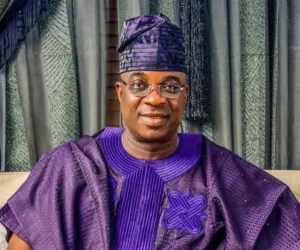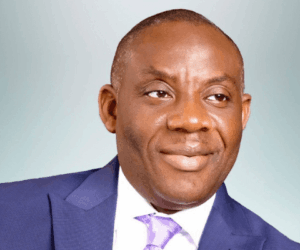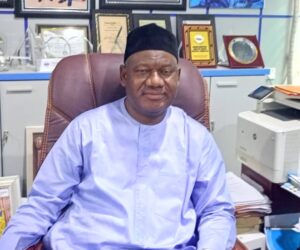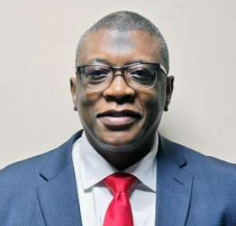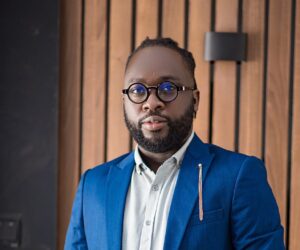Another illustrious Nigerian bid this earth farewell nine years ago. In what looks like moments of stock-taking, his records of service are hereby opened for the public to judge based on their perceptions; SUNNY IDACHABA writes.
Ojo Maduekwe who died in 2016 was a trained lawyer-turned politician and later a diplomat who played significant roles in Nigeria’s governance and international relations. He was a member of the People’s Democratic Party (PDP) up until his death.
He had served in the cabinet at different times; for instance, in 1999 under former President Olusegun Obasanjo, he was appointed minister of culture and tourism during which time, he advocated for Nigeria’s cultural heritage and tourism development.
Again, in 2001, he was appointed minister of transport during which he also introduced reforms in the transport sector, including road safety initiatives.
In the diplomatic circles, he was appointed as foreign affairs minister and later as Nigerian Ambassador to Canada in 2010 under the administration of late President Musa Yar’adua where he did his best to strengthen bilateral ties between Nigeria and Canada.
As transport minister, he nearly stirred the hornets’ nest when he suggested the controversial replacement of automobiles with bicycles for urban mobility, a policy summersault that attracted wider scorn from Nigerians.
At one point, he was national secretary, Peoples Democratic Party (PDP) and in 2011 was the deputy director of the Goodluck/Sambo Presidential Campaign.
In many forums, this late Abia state-born politician was noted for his intellectual prowess, depth of knowledge, wit and commitment to public service. He passed away just after a brief illness on June 29, 2016.
Igboeli Arinze, an analyst, however ,saw Maduekwe as somehow who hid under the facade of intellectualism and wit to close his eyes against some wrong doings around him. For instance, he said, “I never liked the person of Chief Ojo Madekwe. No apologies here, I never liked the man’s politics or views most of the time. I know we as Nigerians never like to speak ill of the dead. With Maduekwe’s death, a number of Nigerians have come to eulogise the man. Honestly, I would really have had no troubles with these eulogies but for the fact that they came from notable Nigerians who presented him as a reputable intellectual, as one who never puckered his brows at criticism and who would invite critics to joust with him. Honestly, I never discerned Ojo to be all these; perhaps, I never got to know the man too well besides his statements and the visage I got of him.
“The Ojo I knew was one who stood on the other side of the political divide while his so-called ideas were battered in his very presence.”
Igboeli went further to ask rhetorically: “Where was Ojo’s intellectualism when the duly-elected chairman and secretary of his political party were forced to resign at gun point because the duo disagreed with the sitting president then? His intellectualism never saw light while President Obasanjo sought a third term in office using humongous resources and abused state institutions in an attempt to muscle the opposition and legislators who were not yielding. Perhaps, he was like Nicodemus who preferred to espouse his intellectualism in secret.”
Igboeli may be right in his own perception of the man even in death, but perhaps one individual who understood the man very well is Osita Chidoka, a former minister of aviation/ Corps Marshal of the Federal Roads Safety Commission (FRSC).
In what looked like a lengthy tribute in honour of the man who was his former boss, Chidoka said his late boss was a man of many parts.
Chronicling his assessment of the man, he said, “When I was appointed as FRSC boss, we moved into the Foreign Affairs building in 2012 and I sat on my chair for the first time, my special assistant remarked, ‘Your former boss, Ojo Maduekwe, used to sit on that very spot as foreign affairs minister’. That realisation that I was in the same room where you (Maduekwe) held sway as minister really hit me. And when you visited a few months later, you said the same thing and prophetically added, ‘Osita, seeing you on that chair means you will be a minister faster than I thought’.
“In fulfillment of that prophecy, I came to your house in July 2014 to seek your advice on the presidential call to serve as a minister. You gave me your blessings that night and I accepted the call the following day. In about one year, your prophecy came to pass.”
Recounting further, he said, “I remember our first trip to Washington DC a few months after you assumed office as minister of transport. It was a global multi-modal conference on transportation organised by then transport secretary Rodney Slater, whose friendship with you continued after both of you had left office. You were to speak on the topic of ‘Livability Principle in Transportation’. I was worried because we did not come with any speech from Nigeria and you were not a transport professional.
“To my amazement, hours before the event, you wrote a paper which I typed and till date, I consider it your finest writing. Yes, I consider it your best speech both in content and style because in that paper, you outlined your vision as transport minister and spoke about reintroducing a bicycle culture to improve livability. That part of the paper caught the attention of the participants. Throughout my period with you as an aide, you wrote all your speeches.
“You turned the National Maritime Agency (NMA) into the Nigeria Maritime Administration and Safety Agency (NIMASA) by merging the government inspector of shipping and National Maritime Agency.
“You brought the same untiring nerve to foreign affairs ministry with Bi National Commission between Nigeria and the United States of America. You worked tirelessly for Bi National Commission between Nigeria and Canada. You propounded your theory of citizen centric diplomacy and practised it as Nigerian High Commissioner to Canada.
“Many remember you with the famous statement, ‘Igbo Presidency is Idiotic’. Many have asked me, ‘Why did he abuse his kinsmen?’ This was what happened. You had organised a fundraising event for your beloved Asaga Community as part of your community development effort. The fight between you and then Abia governor, Orji Uzor Kalu was at its height. On our way from Asaga to Abuja, we flew via Lagos and impulsively decided to visit Thisday Newspaper which had suffered a fire accident that destroyed its head office. On the way, we saw a screaming headline on Tell Magazine ‘Blood will Flow if…’ By Governor Orji Uzor Kalu. In the interview he threatened war if Igbo Presidency failed in 2003. “You were livid because you knew he was leading Igbos down a path he had no intention of threading because when the chips are down, he (Orji) would vote for Obadanjo. That was the mood when we entered Thisday Newspapers.
“At Thisday, you were warmly received and the publisher, Nduka Obaigbena, called in his editors and a mini interview ensued. You were asked, ‘What is your view about the agitation for Igbo Presidency’? You responded in one word, ‘Idiotic’. The room froze. You then said, ‘Because there is no Igbo Republic, we can only have a Nigerian president of Igbo extraction’. Everybody laughed with relief. Then Nduka said, ‘Is this off record?’ You said, ‘No, publish it’.
“The following day all hell broke loose. The Abia state media machine went on overdrive from a convenient use of the first part of the statement while ignoring the second part. You were reacting to the demagoguery of your political opponent and of course not abusing Igbos as they tried to depict the interview. You were a Biafran ready to lay down your life so that Igbos would live.”
Tope Oriola, a professor of Criminology at the University of Alberta, Canada, said that families of politicians, like the late Maduekwe, who have shaped Nigeria’s socio-political and economic trajectory for better or worse, should find time to write about their experiences as, according to him, history awaits them.
He said, “I met Ojo Maduekwe in April 2014 in Ottawa, Canada at the 50th birthday party of my colleague, Nduka Otiono, a professor of African Studies at Carleton University where several members of Nigeria’s diplomatic corps and Ottawa glitterati were present. Chief Maduekwe and I literally hit it off. We discussed Nigerian politics, insurgencies around the world and the global threat of terrorism. The chief was interested in my assessment of the Boko Haram threat and how long I thought it would last given my area of research.
“I should point out that I find his knowledge extremely attractive. I was mesmerised by his level of intelligence. Here was a man who was well-read and incredibly articulate. Knowing his political antecedents, I was left baffled by the seeming disconnect between his intelligence level and his political adventures. Why did he serve in almost every government and work closely with markedly different politicians? What did his moral compass look like? How many of our leaders are brilliant? I was also surprised at the stark difference between his public persona and his private demeanour.”
For whichever reasons for which Ojo Maduekwe may be known in Nigeria, he cannot be forgotten, having occupied public offices at different times.


